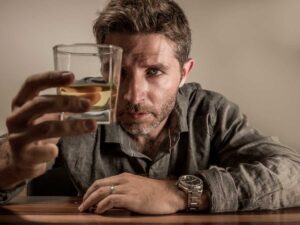 “It only takes a few hours to learn “how it works” and the rest of our lives to practice it!”
“It only takes a few hours to learn “how it works” and the rest of our lives to practice it!”
Having worked with addicts from all over the world, the reasons for relapse amongst those with sobriety time seems to always point to same conditions–they stopped working their program. This share is a synopsis of their stories.
I got sober working the Twelve Steps of Cocaine Anonymous and that was a miracle in my life, because for years the only thing on my mind, morning, noon and night, was how do I get high, stay high and get higher. The desire to drink or use drugs was gone. Life was great. Family relationships improved. I started working again and I was able to save a little money. Then I went on cruise control. I got cocky and complacent. My program began to waver.
The first principle I let go of was unselfish work with other addicts. This was my Twelfth Step. Intensive work with other addicts was too strenuous. I was too busy to carry the message to other suffering addicts, so I stopped working with newcomers and having fellowship with other recovered addicts.
Next to go was Step Eleven. I stopped listening to God through meditation and eventually I also stopped talking to God through prayer. My conscious contact with God diminished. What used to be an intuitive direction became muddle confusion.
Next, Step Ten ceased to be part of my daily routine. I got bogged down with the minutia of daily life. I stopped watching for selfishness, dishonesty, resentment and fear. I stopped asking God for guidance. I stopped discussing my shortcomings with others. I didn’t bother to clean up my mistakes or make amends for my wrongdoings nor did I turn my thoughts to someone I could help.
When I quit working my daily program of action, my spiritual fitness began to wane. I no longer wanted to clean up my past and set matters right. I discarded my Step Eight list of people I had harmed and ceased to make any further direct amends as suggested in Step Nine. Guilt, shame and remorse over the things I had done began to creep back into my thought-life disturbing my peace of mind and serenity.
Step Seven ceased being a part of my evening prayer and meditation. I no longer asked God to remove my defects of character nor did I ask God to give me strength to be honest, pure, unselfish and loving. With that, I ceased doing Step Six. I failed to see the futility and the fatality of my character defects and their terrible destructiveness. My shortcomings were no longer objectionable and became unwilling to let them go.
Next to go was Steps Four and Five. I no longer confessed my shortcomings with others because I stopped taking a fearless and moral inventory of myself. Resentments, fears, and harms to others began to pile up and I once again became blocked from the sunlight of the spirit.
Now I no longer wanted to turn my will and my life over to God as suggested in Step Three. I had better ideas. A hundred forms of fear, self-delusion, self-seeking and self-pity drove me to selfishness and self-centred behaviours. I gave up searching for the great reality deep down within me. I became unwilling to believe in a Power Greater than myself. I lost faith in Step Two and once again lack of power became my dilemma.
Having no power, I had no defence against my addiction. My sound reasoning failed to hold me in check. The insane idea won out. All had gone well for time and relapse was unthinkable, but I failed to enlarge my spiritual life and to my consternation I found myself drunk and high in a very short period of time. Once again I was at Step One— I was powerless over cocaine and all other mind altering substances and my life had become unmanageable.
I’ve heard this story many times over my years of working with others. Question: What can the relapser do about it?
Well, I’ve got good news and bad news. First the bad news. Unless we can experience and entire psychic change there is very little hope of our recovery (p. xxix) . The good news—there is a solution (p. 25).
A Big Book promise states: when the spiritual malady is overcome, my mind and body straightens out (p. 64).
So, imagine three layers. The first layer is our bodily reaction to alcohol and drugs when we ingest them — the physical craving. Under that is the second layer: the insanity of the mind just before the first drink or drug — the mental obsession. Under that is the third layer: the inward condition that triggers the second layer, which in turn triggers the first — the “spiritual malady.”
Symptoms of this “third layer” as described in the Big Book include:
- having trouble with personal relationships (yes / no?)
- not being able to control our emotional natures (yes / no?)
- being a prey to (or suffering from) misery and depression (yes / no?)
- not being able to make a living (or a successful life) (yes / no?)
- having feelings of uselessness (yes / no?)
- being full of fear (yes / no?)
- unhappiness (yes / no?)
- inability to be of real help to other people (p. 52) (yes / no?)
- being like “the actor who wants to run the whole show” (pp. 60-61) (yes / no?)
- “being driven by fear, self-delusion, self-seeking, and self-pity” (p. 62) (yes / no?)
- self-will run riot (p. 62) (yes / no?)
- leading a double life (p. 73) (yes / no?)
- living like a tornado running through the lives of others (p. 82) (yes / no?)
- exhibiting selfish and inconsiderate habits (yes / no?)
- being restless, irritable, and discontented (page xxviii) (yes / no?)
So, ask yourself, Am I suffering from the “spiritual malady” — particularly if you haven’t had a drink or drug in a while. Currently, what is the condition of your “inner life?” Are you experiencing any of the symptoms listed previously? ( ______ yeses / 15 symptoms) If so what can you do about it?
- Have you ever taken another addict through the Steps? If yes, how long ago?
- Was your Step 4 inventory thorough? Did you leave anything out? If yes, what was it you failed to analyze and discuss?
- Have you completed all your 9th Step amends wherever possible? If not, what remains to be done?
- Is there a wrong relationship in your life that you will not face and make right? If yes, what is it? i.e. a person, job, activity?
- Is there a bad habit, indulgence or character defect you will not give up? If yes, what is it? i.e. vulgar language, gossiping, philandering, social media, smoking, pornography, bigotry or prejudice?
- Is there a person (i.e. ex-spouse, partner or friend), institution (i.e. police, church, government, company) or principle (i.e. socialism, capitalism, woke-ism, communism, altruism) in your life you will not accept and/or forgive? If yes, who or what is it?
- Is there a restitution you will not make? If yes, what is it?
- Is there something God has instructed you to do that you will not obey? If yes, what is it?
- Are you working with the disciplines and practices of steps 10 and 11 (self-examination, meditation and prayer)… CONSISTENTLY… EVERY DAY? i.e. no half measures!
It is easy to let up on the spiritual program of action and rest on our laurels. We are headed for trouble if we do, for alcohol (drugs, obsessive-compulsive behaviour) is a subtle foe. We are not cured of addiction. What we really have is a daily reprieve contingent on the maintenance of our spiritual condition. Every day is a day when we must carry the vision of God’s will into all of our activities. “How can I best serve Thee, Thy will (not mine) be done.” These are thoughts (Spiritual Principles) which must go with us constantly. We can exercise our will power along this line all we wish. It is the proper use of the will (God’s will NOT self-will). (AA p. 85) The spiritual life is not a theory, we have to live it. A new life has been given us or, if you prefer, “a design for living” that really works (AA p. 28) This is not an overnight matter, it should continue for our lifetime. (AA p. 84) Remember, recovery is NOT a sprint, it’s a marathon for life … And I’m for that, how about you?